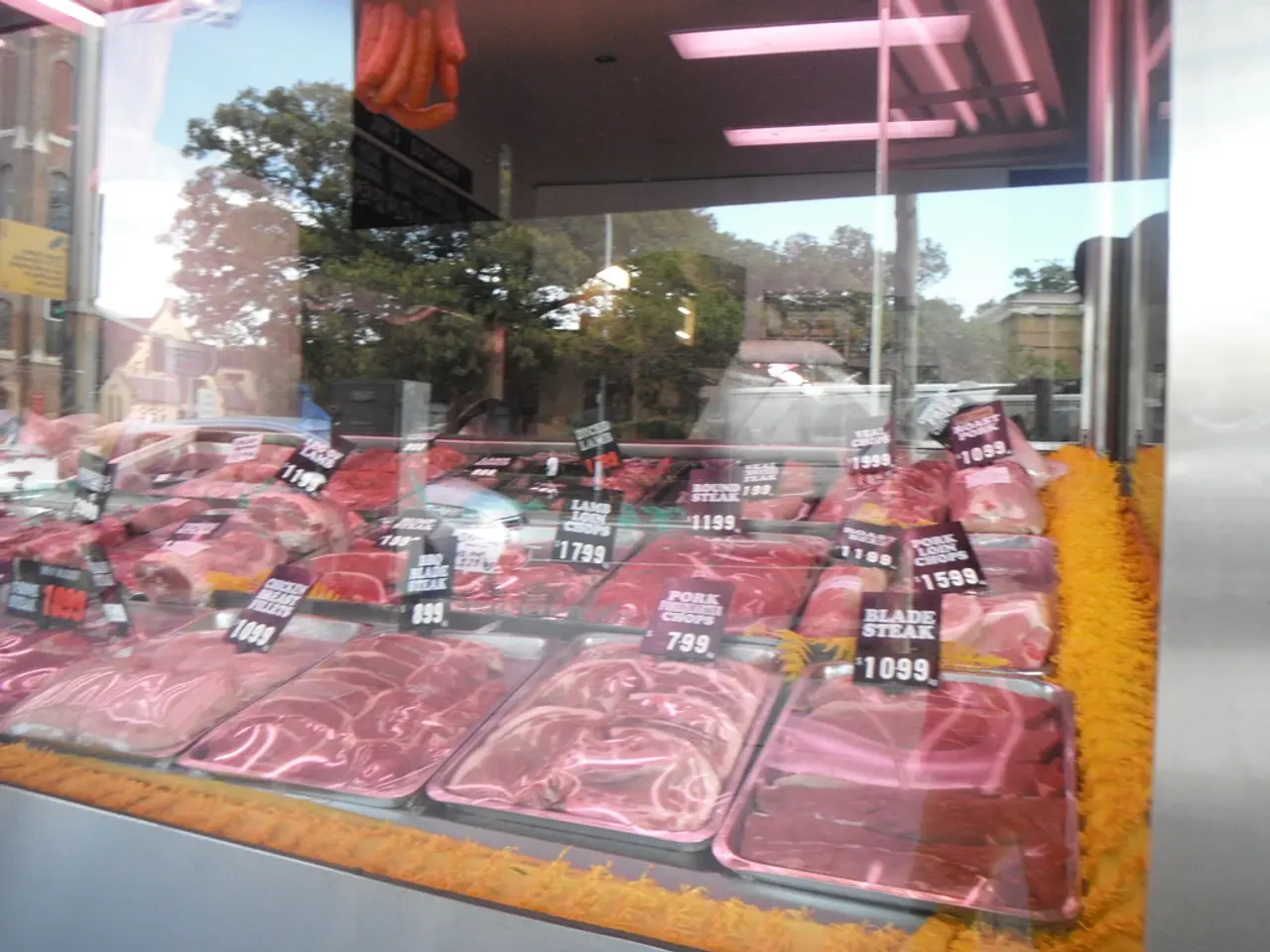In Yakutsk's market, "non-conforming" or "unusual" animal meat was sold.
In Yakutsk, Russia, a concerned resident's complaint sparked an unscheduled inspection by the Rosselkhoznadzor office, the country's agricultural watchdog. The inspection, which took place on August 4, 2025, revealed a need for increased vigilance and enforcement of food safety regulations in the local market.
The focus of the inspection was on compliance with electronic veterinary documentation (eVSD) requirements for imported meat products. The findings revealed that meat products, including reindeer, beef, and pork, were being sold without the necessary eVSD documents.
The individual entrepreneur from Yakutia, who was found to be selling the unaccompanied meat products, was issued a warning. The ongoing sale of meat products without eVSD and uncancelled eVSDs may compromise product traceability and potentially pose a risk to consumer health.
The meat products in question were not of local origin but were imported from the Altai region. The unscheduled inspection also uncovered an additional violation related to the handling of eVSD documents, with twenty-three uncancelled eVSDs from 2025 found in violation of the requirement for cancellation within one day of product receipt.
The Rosselkhoznadzor office is emphasizing the importance of proper documentation and traceability in the sale of meat products. Consumers are encouraged to report any suspicions about the sale of unaccompanied or improperly documented meat products to the relevant authorities.
These inspections aim to enforce adherence to Russia’s veterinary control laws, which mandate that all imported meat products must be accompanied by valid electronic veterinary certificates verifying safety and origin. Failure to provide these documents during inspections can result in administrative fines, possible suspension or revocation of sales permits, and confiscation or destruction of meat products lacking proper documentation.
The legal basis and enforcement specifics are aligned with broader Russian federal regulations on veterinary control and food safety, adapted for local implementation in Yakutia, a region with rigorous controls due to its remote location and supply chain challenges.
As of August 2025, unscheduled inspections on meat product sales in Yakutia are conducted with a focus on compliance with electronic veterinary documentation requirements. Consumers are advised to pay attention to product labeling and expiration dates when purchasing meat products to ensure they are safely sourced and properly documented.
[1] Rosselkhoznadzor, (2025). Regulations on veterinary control and food safety in Yakutia, Russia. Retrieved from https://www.rosselkhoznadzor.ru/docs/regulations/yakutia_regulations.pdf
- The Rosselkhoznadzor office's focus on enforcing electronic veterinary documentation (eVSD) in Yakutia extends to the realm of health-and-wellness, as the absence of these documents can potentially pose a risk to consumer health.
- In the realm of science and regulations, the proper documentation and traceability of food-and-drink products, such as meat, are crucial aspects of the therapies-and-treatments used to ensure the safety of consumers.
- Adherence to these civilized lifestyle norms, as promoted by Rosselkhoznadzor, encourages residents to report any instances of unaccompanied or improperly documented food-and-drink products, contributing to the overall well-being of the community.




